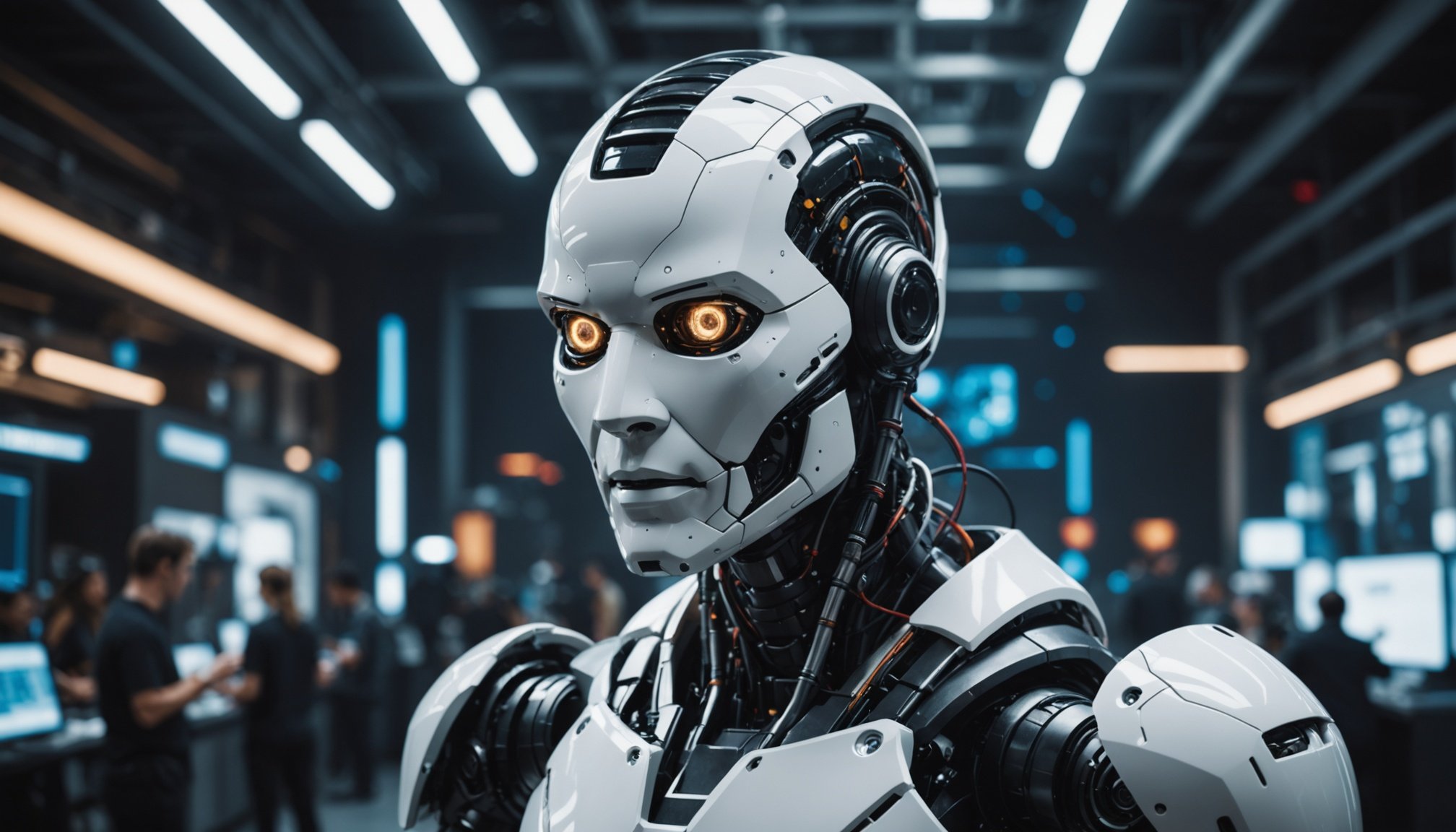Understanding AI Integration in Innovative Experiences
The role of AI integration in creating innovative experiences has become central in driving modern innovation. By leveraging AI technology, industries can automate tasks, personalize experiences, and enhance decision-making processes, contributing to increased user engagement. With AI algorithms capable of processing vast amounts of data, businesses can uncover insights that fuel creativity and innovation.
One of the key benefits of integrating AI into creative processes is the ability to streamline operations while maintaining high-quality outcomes. For instance, in the entertainment industry, AI can optimise scriptwriting by analyzing audience preferences and predicting successful themes. Additionally, AI tools in graphic design can suggest color palettes and layouts, accelerating the creative process.
Also to see : Proven Strategies for Building a Winning Automated Trading System to Achieve Peak Performance
Case studies offer concrete examples of successful AI integration across various sectors. In the automotive industry, AI has improved autonomy in vehicles, enhancing safety and efficiency. Similarly, in fashion, AI algorithms predict trends by analyzing consumer data and social media patterns, allowing brands to stay ahead of the curve.
These examples highlight how AI technology does not just support innovation; it transforms how creativity is conceived, executed, and experienced across different domains. AI integration stands as a powerful tool, enhancing the evolution of industries and amplifying user experiences.
Also to discover : Mastering Instant Fraud Detection in E-Commerce: Your Comprehensive Guide to Building Tailored AI Solutions
Practical Examples of AI in Action
AI is blazing a trail across various industries, offering dramatic shifts in operations to boost efficacy and results. It is not just transforming sectors but revolutionising user engagement through cutting-edge technologically enhanced applications.
AI in Healthcare
AI’s ability to revolutionise patient care is profound. In healthcare, AI applications redefine diagnostics by analysing complex data rapidly and with precision. Case studies showcase hospitals successfully implementing AI to predict patient deterioration, resulting in timely interventions. Machine learning models are utilised to scan imaging data, surpassing traditional methods in speed and accuracy, and boosting patient treatment outcomes.
AI in Marketing
Contemporary marketing thrives within AI tools’ ambit, improving product targeting and enhancing consumer engagement. Brands are successfully leveraging AI for predictive analytics, facilitating personalised ad campaigns that resonate more profoundly with target audiences. The technology enables adaptive strategies, ensuring real-time response to market dynamics, thus optimising customer engagement.
AI in Education
AI’s presence in education transforms learning environments by introducing personalised learning experiences tailored to individual student needs. Institutions integrate AI to monitor progress, suggest resources, and adapt teaching methods, ensuring enriched, interactive student learning. Leading educational bodies have implemented AI in curriculum design, providing responsive and evolving educational modules.
Expert Opinions on Future AI Trends
In the realm of AI integration, industry leaders frequently share insights addressing future trends to guide innovation. Experts forecast significant advancements in AI technologies, poised to revolutionise user engagement by refining and personalising experiences across sectors.
A prominent emerging trend is the development of AI that adapts in real time, offering dynamic solutions tailored to user behaviours. This fluid adaptability enhances decision-making processes, allowing businesses to respond swiftly to market demands. Additionally, experts anticipate AI’s evolution will not just streamline operations but also reshape entire industries with innovative experiences that merge creativity and technology seamlessly.
Leading voices in technology stress the importance of adaptive strategies, emphasising that businesses must remain agile to benefit from these advancements. As AI grows more sophisticated, the potential for creative integration expands, leading to opportunities for unprecedented levels of automation and personalisation.
Furthermore, experts highlight the necessity of ethical considerations as AI becomes integral to innovation. Ensuring transparency and accountability will be essential in fostering trust and maximizing AI’s potential. By staying informed of industry predictions, businesses are better equipped to navigate the challenges and embrace the opportunities that future AI developments present.
Step-by-Step Guide to Implementing AI
Integrating AI technologies into a business involves a meticulous approach and careful strategizing. This guide provides actionable strategies to ensure seamless AI implementation aligned with organizational goals, driving innovative solutions and user engagement.
Initial Assessment
To begin, organizations must conduct a comprehensive analysis of their current operations. Assessing your organization’s needs for AI integration is crucial. Identify areas where AI can enhance efficiency and assess readiness using specific evaluation tools. These tools can help businesses understand and predict the potential impact of AI on various processes, helping to align expectations with realistic outcomes.
Strategic Planning
Develop a clear roadmap for deploying AI, which aligns with overarching business goals. Crafting such a roadmap involves determining the key AI applications that align with your strategic priorities. Focus on scalability and flexibility to accommodate the evolving nature of AI technologies. Additionally, incorporate user engagement metrics for measuring the success of AI tools in real-world applications.
Execution and Evaluation
Effective AI deployment requires strategic execution. Ensure your team is equipped with the necessary skills and knowledge. Establish metrics and KPIs to measure AI impact and innovation effectiveness. Continuous monitoring and evaluation guarantee that AI integration remains aligned with desired business outcomes. Adjust strategies as needed to optimize performance and innovation.
Future of AI-Powered Innovation
The future of AI promises transformative changes across numerous sectors by driving innovative solutions and influencing next-generation technology. As AI technologies further integrate into various industries, they offer potential for significant advancements while simultaneously presenting ethical challenges.
One anticipated impact is AI’s role in fostering sustainable innovation practices. For example, AI can optimize resource management in manufacturing, reducing waste and minimizing environmental footprints. This technological evolution demands attention to both advancement and its environmental impacts.
Yet, alongside these opportunities, ethical considerations remain paramount. As AI systems become increasingly autonomous, issues such as data privacy, algorithmic bias, and decision-making transparency emerge. Addressing these concerns is crucial to ensure responsible implementation and maintain public trust.
Furthermore, a collaborative future between humans and AI is envisioned, where AI-enhanced tools can augment human abilities rather than replace them. For instance, in the workplace, AI can undertake routine tasks, allowing professionals to focus on more complex and creative pursuits. This synergy can potentially redefine traditional roles and promote a balanced integration of technology and human expertise, ultimately enhancing productivity and innovation across industries.






